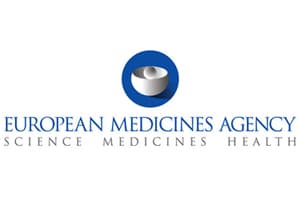 Patients in the EU with the rare liver disease primary biliary cholangitis (PBC) could be a few months away from getting access to a new treatment that was recently approved in the US.
Patients in the EU with the rare liver disease primary biliary cholangitis (PBC) could be a few months away from getting access to a new treatment that was recently approved in the US.
Intercept Pharmaceutical’s Ocaliva (obeticholic acid) has been recommended for conditional approval by the EMA’s Committee for Medicinal Products for Human Use (CHMP) – provided the US biotech company provides updates on two ongoing clinical trials.
Ocaliva is meant to be used in combination with ursodeoxycholic acid (UDCA) in patients with PBC who do not respond well enough to UDCA alone, and as a monotherapy if they cannot tolerate UDCA, which is the only approved drug for PBC in Europe.
The go-ahead is based on three trials investigating the effect of Ocaliva on PBC biomarkers, which revealed that the drug was able to reduce alkaline phosphatase levels by 47% over 12 months versus 10% for placebo.
While a rare disease, PBC is one of the most common causes of a liver transplant among women in Europe, according to David Jones, a liver disease specialist at Newcastle upon Tyne Hospitals Trust in the UK.
“There is substantial unmet need in this disease and a real urgency around the need for new therapies … to prevent the development of cirrhosis and the need for transplant,” he said.
Intercept is currently conducting a phase IV confirmatory outcomes trial called COBALT, as well as a short-term study in patients with hepatic impairment, to try to convert the conditional approval into a full registration.
The nod from the CHMP comes five months after Intercept bagged a conditional approval from the US FDA for Ocaliva in the same indication, and sets up the company to start launching the drug in the EU – which has more PBC patients than the US – through 2017.
While PBC is a small indication, Intercept is also developing Ocaliva for non-alcoholic steatohepatitis (NASH) or fatty liver disease, which would dramatically increase the sales potential for the drug. GBI Research recently predicted that Ocaliva could become a blockbuster therapy by 2022.
The phase III REGENERATE trial in NASH patients with advanced fibrosis is due to generate initial results in 2019. Meanwhile, the company also has two phase II trials in two other rare disease – primary sclerosing cholangitis (PSC) and paediatric biliary atresia (PBA).




